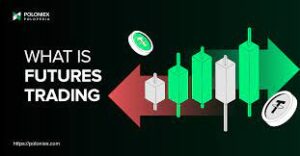Benefits of Trading Futures
Unlike stocks, which are physical assets that have to be financed, futures are financial derivatives that allow you to speculate on price changes without having to actually own the underlying asset. Only a small percentage of futures contracts end up in physical delivery and most are closed before they expire. The concept is simple – you buy or sell a contract at a predetermined date and time in the future for an underlying asset. If the price of the underlying asset at that point is higher or lower than the contracted price, you make a profit or loss.
futures trading has expanded beyond a few obscure agricultural products to include virtually any product or asset you can imagine. For example, you can now trade a futures contract on oil, corn, coffee, grains, copper, gold, silver, platinum, and even volatility. For most futures traders, the primary reason for trading them is to gain exposure to a particular commodity or index at a more predictable cost than it would be available in the cash market. For many, this reduces overall investment costs as it is often cheaper than purchasing the corresponding stocks or bonds in the underlying sector.

Another reason to consider speculating on futures is the leverage they provide. As a rule of thumb, futures traders have access to anywhere between 8 to 33 times leverage based on their initial margin deposit, which is used to open the position. This translates into a larger position size with the potential to profit faster than traditional securities, although it also magnifies your losses and can lead to margin calls if you get positioned on the wrong side of the market.
What Are the Benefits of Trading Futures?
As a result, you have to be prepared to make some large, potentially volatile losses when trading futures, particularly on fast-moving markets. For this reason, it’s advisable to only trade them if you have the means to finance the positions should the price move against you.
Another benefit of a futures contract is that it does not experience the same time decay that options do. This makes it a great option if you’re looking to take advantage of an expected change in a specific market trend. For instance, let’s say you were bullish on banks due to a rate cut by the RBI. Instead of buying banking stocks, you could speculate on Bank Nifty futures. In this way, you can enjoy all the benefits of the rate cut while de-risking your portfolio by removing the stock-specific risk.
This is a great way to diversify your investments. In addition, you don’t have to worry about the additional fees associated with owning physical assets like storage, handling, and insurance. The only extra expenses you’d incur are the trading and exchange fees on the notional value of your contract. This is the maximum amount you control over the underlying asset, but excludes any exchange or clearing fees that may be charged to you. If the total notional value is close to your actual account balance, it is a good indicator that you’re in the money on your bets.